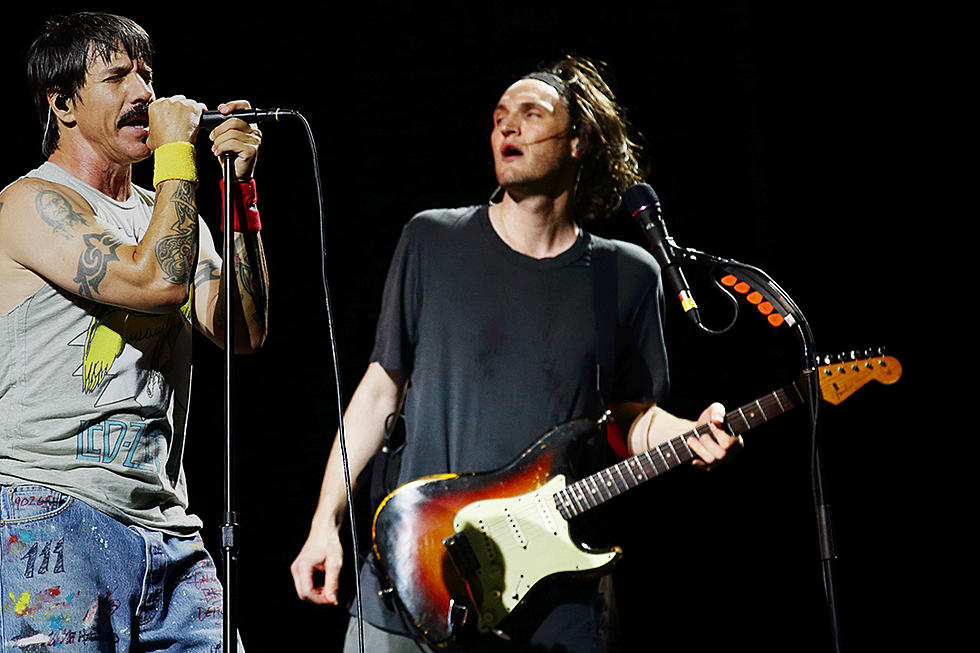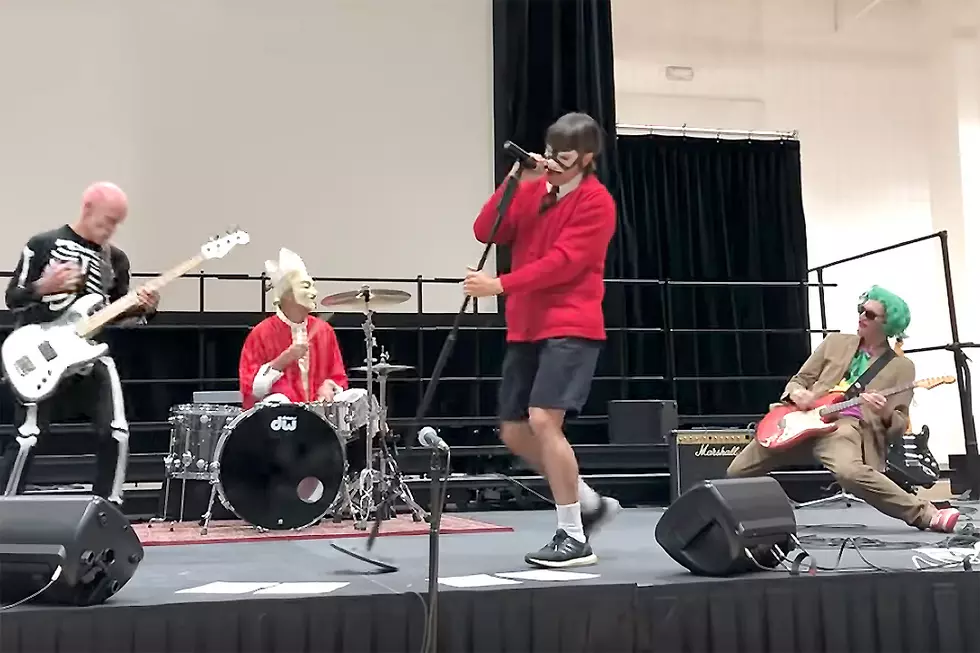
Andy Gill Reflects on Producing Red Hot Chili Peppers’ Debut Album
While Andy Gill was in New York City recently, we caught up with the legendary post-punk rocker to chat about everything happening in his world, including Gang of Four's upcoming eighth studio album, 'What Happens Next.'
We also discussed the lasting impact of Gang of Four. It's hard to believe that they unleashed their debut in 1979, and now, in 2014, they're gearing up for new music. Few bands have that sort of staying power, but Gang of Four show no signs of slowing down anytime soon.
Part of Gill's legacy falls outside of the realm of that band, too, as he's built a prolific production career. One of the highlights on his timeline comes around 1984 when he produced the Red Hot Chili Peppers' self-titled debut album. In an exclusive interview with Gill, he fills us in what it was like producing the record -- and even has some pretty entertaining stories about the process.
How did you get involved with the Red Hot Chili Peppers for their debut album?
That's a couple of hours in itself. [Laughs]
It's interesting to me that you released Gang of Four's debut in 1979 and the Chili Peppers released their debut in 1984. Then you look at where we're at today and both bands are still making new music.
When I first met (the Red Hot Chili Peppers), they were big fans. There's a Gang of Four song called ‘Not Great Men,’ and they said that was the reason they started their band. That song just got them. They were very... they loved that sort of guitar music, funky guitar music I guess you could say. They, at that point in time, were doing their own kind of funky semi-rapped stuff and they also had these very fast, short, punk rock songs. At that time there were a lot of bands doing that super fast music, all over in two minutes. I thought that was not interesting -- it was just sort of another take on punk rock. But the other stuff I thought was real interesting and cool. Probably my biggest contribution to them was to kind of get them to not concentrate too much on those punk rock songs and getting them to do the funkier thing.
I remember having a wonderful argument with Anthony [Kiedis]. We had a drum machine and I wanted them to kind of use it as a tempo to guide them so they didn't speed up too much, and we had this argument. Anthony basically said that it had no soul so it was therefore wrong to use it. I was really digging in on it, you know, it doesn't matter if it's got a soul or not, its going to keep you in time.
It was this big old drum machine from the ‘80s. At one point, he got on one end of it and I got the other end of it and we were shouting back and forth, “No! Yes! No! Yes! It's got no soul!” Then he was calling the box ‘1984,’ meaning it's Big Brother. It's funny the arguments you have in the studio. So the compromise was, Cliff Martinez, the drummer, was going to listen to it and put down a cowbell and they'd play to the cowbell, which had a soul, obviously. [Laughs] But not the drum machine itself, so that was the compromise.
Were you apprehensive at all about joining up with them to produce the album or were you on board immediately?
I was on board. I thought they were really good. Flea was this amazing bass player, Cliff was this amazing drummer. Jack Sherman was the guitarist on that album -- personality-wise it was obvious he was not going to last. Jack was macrobiotic. They were into their drugs at that point and there was bit of a clash there. But Jack actually turned them onto Funkadelic -- they really didn't know about that, so he brought a bit of that to the band. Jack Sherman is a brilliant guitarist, but they were never going to gel. In fact, seeing those early gigs, they did a few shows when I was in the middle of the record and they were just antsy to be absolutely rude about it on stage, sort of saying, “You're a f--king jerk, you're an idiot.” I had to tell them, “Don't say that about your guitarist! Shut up!” He tried to sue them, do you remember that?
Jack did?
Yeah! He tried to sue them for emotional damage.
Geez. Did they call you for a witness?
[Laughs] It didn't come to that, but I would have probably had to say, “Yes, your honor, he's right." In fact, let's talk about my emotional damage as well! [Laughs]
Do you stay in touch with the guys at all?
I bumped into Flea a couple of years ago. [Artist] Damien Hirst was having a launch party, this massive launch party to sell a few more billion dollars in the art world. Flea was there, and he actually said to me, “Thank you so much for never suing us over Anthony stealing your work.” [Laughs] Good thing I didn’t have a tape recorder on!
You Think You Know the Red Hot Chili Peppers?
More From Diffuser.fm









